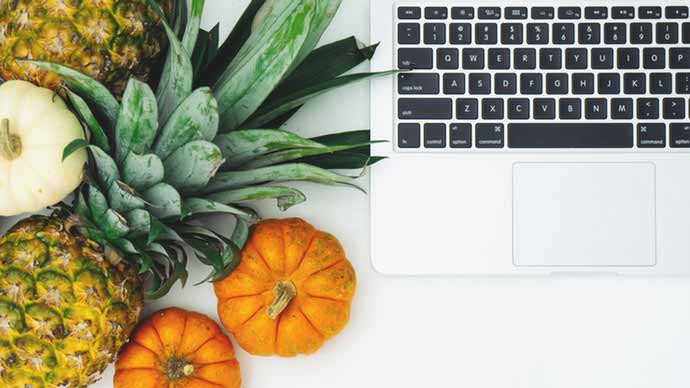The High-Fact Diet
Do you ever feel burdened by the fact that you know so much about nutrition? This is what is called a “high-fact diet”.
Many of us are almost too well educated about what we eat, and this is actually creating stress in our bodies. And yes, I am speaking from personal experience. If we overthink every morsel we eat, we can be causing more harm than good.
Knowledge can nourish us. It can open our minds and make us feel empowered. But as with anything we consume, it’s possible to have too much of a good thing. (Source)
Take me for example…
There are these peanut butter crackers. I love them. They’re just so delicious! BUT they have high fructose corn syrup in them. I used to eat them occasionally and really enjoyed them. However, when I learned how to read nutrition labels and learned that HFCS is “bad”, I started to avoid them altogether.
One day while I was still in nutrition school, I went on long hike in the middle of nowhere and didn’t bring enough snacks. I was, however, near a gas station where I saw my beloved peanut butter crackers. I was starving, and they were taunting me. But I got so stressed about eating a package that after devouring them, I was consumed by guilt because I knowingly ate something that wasn’t health promoting.
I believed the saying “you are what you eat” and so I believed that I was choosing to “poison” myself with HFCS. Of course, I now know that this is ridiculous. But when your mind is full of nutrition facts about how certain foods affect you, you begin to believe that you shouldn’t ever have these foods.
I can’t stress this enough – all foods can fit into a healthy diet.
We Don’t Need to be Perfect
No matter what the media or your nutritionist says (as I used to practice this way), we don’t need to be “perfect” eaters. Today, I focus on eating healthy foods for the most part – but I no longer categorize foods as either good or bad. I am more aware of how I am nourished by how I am living my whole life.
Right now, I am on vacation with my sister’s family and their three kids. I eat what I am served. Period. I am relaxed. I don’t have to cook. Instead, I focus on the joy of being around my family. I am nourished by far more than the food. Our metabolisms are fired up by more than what we eat. It’s also affected by what we think and how we feel about our food (and life).
If you missed my blog post about how your mindset affects your metabolism, you can check it out here.
Do You Have a High-Fact Diet?
- So, how do you look at ______? (Insert your gas station peanut butter crackers equivalent.)
- Can you eat _______ without a side of guilt or self-judgement?
Your answer to this question will tell you whether or not you’re living a high-fact “diet.”
If you are indeed way too knowledgable to approach your plate without guilt, then please – breathe. Take that weight off your shoulders.
Nutrition facts are everywhere (and my head is full of them) but we need to remember what we’re not reading on the internet and magazines, and hearing on podcasts and other media. There are many people who have less healthy food and exercise habits but somehow avoid getting diseases and live to ripe old ages. How is this possible? Our metabolisms and health are affected by far more than what we put in our mouths.
Eating healthy food is wonderful and is part of good health. But what you eat doesn’t define your whole health. Notice if you’re on a high fact diet and how it’s affecting the health of your mind and spirit.
Need some support in becoming a more relaxed, flexible healthy eater? I would love to chat!
- Tanya



![You are more than what you eat + [what you think and feel about it matters more]](https://www.tanyamark.com/wp-content/uploads/2022/08/content_mind-over-food.jpg)